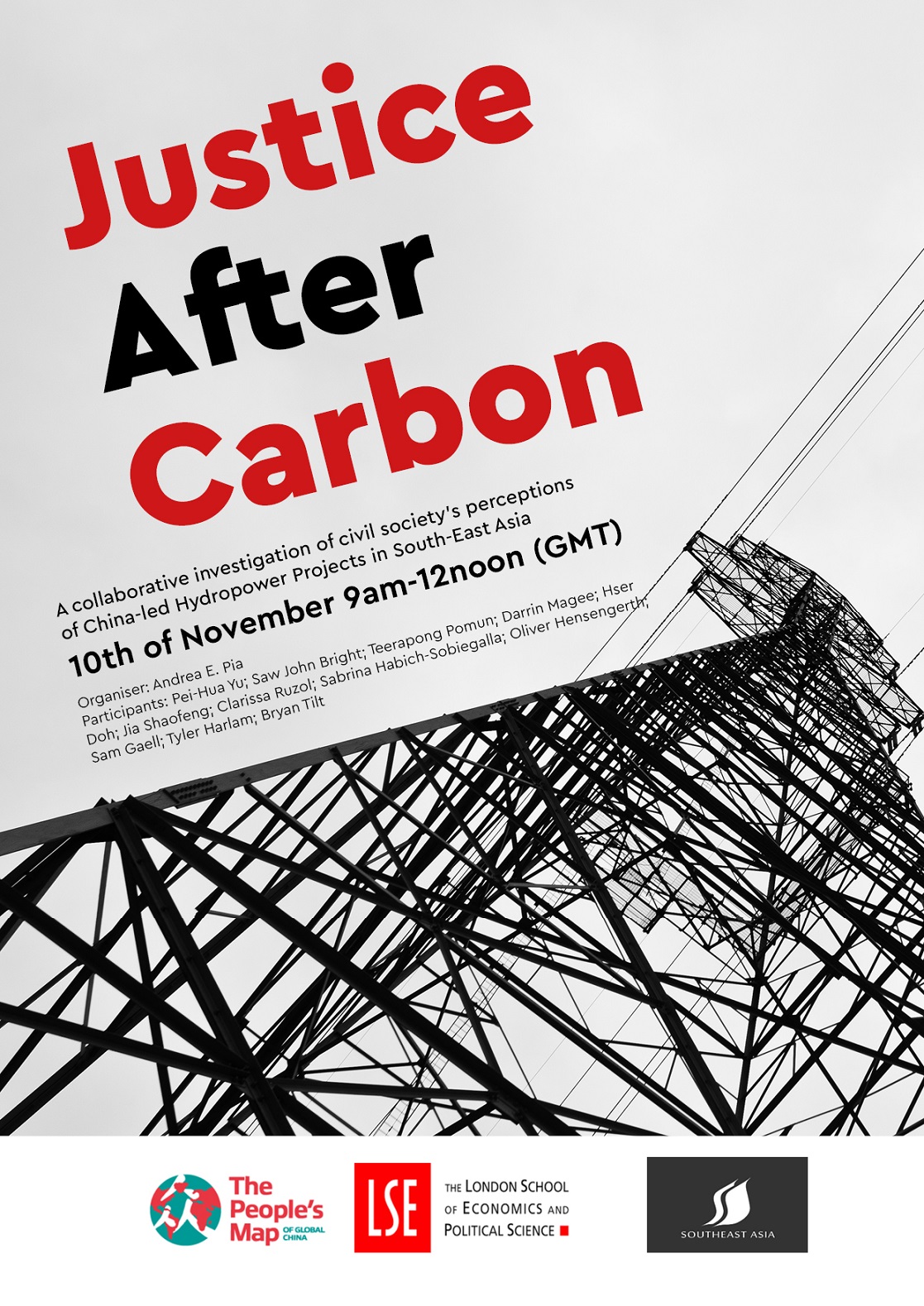Justice After Carbon is an online workshop that brings together academics and a range of local and international civil society stakeholders to investigate the socio-environmental implications of the ongoing transition towards more sustainable models of energy production in Southeast Asia. This workshop aims at collecting the views of, and debate the theoretical insights generated by concerned academics, sustainable energy practitioners, conservationists, indigenous activists, and rights of nature activists relative to China-led hydropower and related hydraulic projects, which promise to power the Southeast Asian economy through decarbonization and rationalize water use across its borders.
9:00 - 10:30am
The workshop will begin with a short presentation on existing themes in environmental anthropology and the environmental justice scholarship about sustainability transitions. Subsequently, the invited speakers will each introduce their current and/or past work on water resource and/or hydropower sustainability in SEA.
10:45am - 12:00pm
Closed session for invited attendees only
In preparation for the workshop, all attendees are asked to familiarise themselves with the following:
1. People’s Map of Global China and its accompanying biannual OA journal Global China Pulse.
2. Read one or more sample project profiles:
https://thepeoplesmap.net/project/myitsone-hydropower-dam/
https://thepeoplesmap.net/project/stung-tatay-hydroelectric-project/
https://thepeoplesmap.net/project/lower-sesan-2-dam/
https://thepeoplesmap.net/project/oddar-meanchey-coal-power-plant/
https://thepeoplesmap.net/project/sanakham-hydropower-project/
https://thepeoplesmap.net/project/nam-ou-river-cascade-hydropower-project/
3. Think about these questions:
• What is the fate of riverine communities across Southeast Asia?
• Is it possible to reconcile the political impetus towards a more sustainably powered economy with the equally important requirement for the protection of richly biodiverse, socio-natural communities?
• On what varying intellectual, economic, and ethical grounds are current China-led water development projects in SEA pursued and/or fought against?
• Whose future does get counted in, and whose present counted out, by Chinese transboundary water management?
• What is sustainability?
• Can sustainability transitions be just?

LSE holds a wide range of events, covering many of the most controversial issues of the day, and speakers at our events may express views that cause offence. The views expressed by speakers at LSE events do not reflect the position or views of The London School of Economics and Political Science.